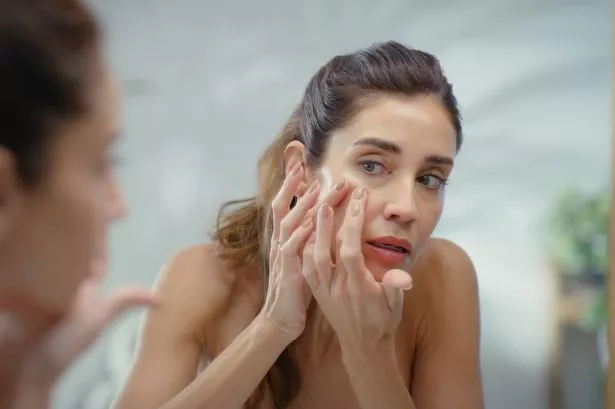The digital landscape has given rise to countless trends, and among the most pervasive is the “perfect face” phenomenon on platforms like TikTok. This viral sensation, which sees creators altering celebrity features to align with a supposed ideal, has garnered millions of views, sparking widespread debate about its profound impact on mental health and societal beauty standards.
The mechanics of this trend are straightforward yet unsettling: popular celebrities’ frontal photographs are taken and overlaid with a “perfect face” template. Using advanced editing software, their unique features are then meticulously warped to fit this pre-defined mould, often resulting in an ‘after’ image that renders the individual almost unrecognizable from their true self, highlighting a concerning aspect of digital beauty.
This practice has not gone unnoticed by the online community, drawing significant criticism from viewers who express concern over its potential to erode self-esteem. Comments under these widely-viewed videos frequently articulate dismay, with many questioning the necessity of such edits and the damage they might inflict, particularly on impressionable young audiences observing these unrealistic beauty ideals.
A particularly troubling dimension of this trend emerged with instances like the editing of biracial actress Lola Tung, where viewers noted her features appeared more Europeanized post-filter. This observation underscores the Euro-centric bias often embedded within these “perfect” templates, raising critical questions about inclusivity and representation within prevailing beauty standards and their effects on body image perception.
The concept underpinning these templates, the ‘Golden Ratio,’ traces its roots back to Ancient Greece, positing a mathematically precise formula for attractiveness based on facial symmetry. However, critics argue that applying this ancient ideal rigidly to diverse human faces disregards unique features and perpetuates a narrow, often unattainable, vision of beauty, thereby reinforcing a singular and often damaging digital beauty standard.
Saffron Hughes, a professional makeup artist, warns of the detrimental effects these TikTok trends can have on women’s self-esteem. She emphasizes that these visually polished edits are a swift route to fostering feelings of inadequacy, exacerbating existing pressures on individuals to conform to an idealized appearance that simply does not exist in reality, impacting their overall mental health.
Ultimately, the “perfect face” trend pushes a homogenous notion of beauty, dictating flawless skin, high cheekbones, and precise facial proportions as the only benchmarks of attractiveness. This digital manipulation creates an illusion that even the celebrities being altered wouldn’t recognize, urging a vital conversation about the importance of embracing natural diversity and challenging the pervasive influence of unrealistic beauty standards in the digital age, for the sake of healthy body image.






Leave a Reply